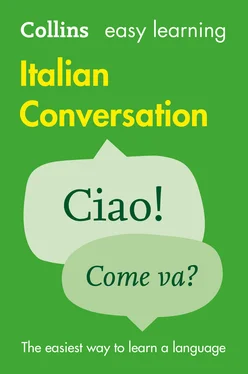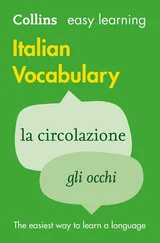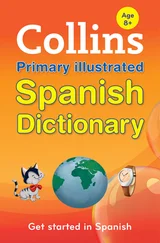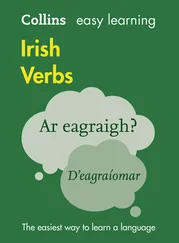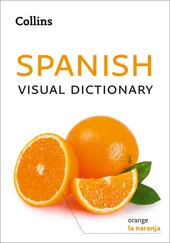When making arrangements with someone, use Le va bene…?or, more informally, Ti va bene…?( Is it okay by you if…? ) to ask someone if something suits them. vacomes from the verb andare. For more information on andare, see here.
| Le va benecenare alle nove? |
Is it okay by You ifwe have dinner at nine? |
| Le va benealle due? |
Istwo o’clock okay by You? |
| Ti va benese ti tel e fono la settimana pr o ssima? |
Will it be okay ifI phone you next week? |
| Vi va benese restiamo d’accordo così? |
Wouldthis arrangement be okay by you? |
To ask somebody if they would prefer something, use Preferisce…?or, more informally, Preferisci…?( Would you prefer it…? ) which are from the present tense of the verb preferire. You can also use the conditional Preferirebbe…or Preferiresti…. For more information on –ireverbs like preferireand on the conditional, see hereand here.
| Preferisci checi incontriamo in centro? |
Would you prefer it ifwe met in town? |
| Preferisce checi troviamo al ristorante? |
Would You prefer it ifwe met at the restaurant? |
| Preferite chevi passi a pr e ndere? |
Would you preferme to come and collect you? |
| Preferirebbeandare allo spett a colo dopo? |
Would You prefer it ifwe went to the later show? |
| È meglioinvitare anche sua m o glie? |
Is it better toinvite his wife as well? |
| È megliose ti chiamo di sera? |
Is it better toring you in the evening? |
| È meglio sel’avvisiamo prima di venire? |
Is it better tolet You know before we drop in? |
If you want to confirm an arrangement with somebody, you can use Siamo d’accordo…?or Allora d’accordo…?( Are we agreed…? ).
| Siamo d’accordo perla data? |
Are we agreed onthe date? |
| Siamo d’accordo sudove trovarci? |
Are we agreed onwhere to meet? |
| D’accordo, signora? |
Are we agreed, madam? |
| Allora d’accordo? |
Are we agreed, then? |
| D’accordo. |
Agreed! |
BUONO A SAPERSI!
D’accordois used to accept offers or to agree: Ci andiamo insieme? – D’accordo!( Shall we go together? – OK! ).
SAYING WHAT YOU HAVE TO DO
When you want to say that you have to do something in Italian, you use devo( I have to ) followed by the infinitive. devocomes from the verb dovere( to have to ). For more information on dovere, see here.
| Devofare una telefonata. |
I have tomake a phone call. |
| Devostare a casa stasera. |
I have tostay in tonight. |
| Devoandare a cena con i colleghi. |
I have togo out to dinner with my colleagues. |
| Dobbiamo e ssere là alle otto in punto. |
We have tobe there at eight o’clock sharp. |
| Devofinire prima delle due. |
I mustfinish before two o’clock. |
| Adesso devopr o prio andare. |
Ireally mustgo now. |
| Devotelefonare a mia m o glie. |
I mustcall my wife. |
| Devidargli una risposta oggi? |
Do you have togive him an answer today? |
| Deveandare s u bito? |
Do You have togo right now? |
| Dobbiamoportare qualcosa? |
Do we have tobring something? |
When you want to say that you should or ought to do something, use dovrei( I should ) and then the verb in the infinitive. To find out more about the infinitive, see here.
| Dovreichiamare Anne. |
I shouldcall Anne. |
| Dovreidarle il mio n u mero di cellulare. |
I shouldgive You my mobile number. |
| Dovrestevenire a trovarci. |
You shouldcome and see us. |
To ask what someone has to do or when or why they have to do it, put cosa( what ), quando( when ) or perché( why ) at the beginning of the sentence, before deveor, more informally, devi( do you have to? ). deveand devicome from the verb dovere( to have to ). For more information on dovere, see here.
| Cosa devefare? |
What do You have todo? |
| Quando devipartire? |
When do you have togo? |
| Perché doveterientrare così presto? |
Why do you have togo back so soon? |
To say that you don’t have to do something, you can use non sono obbligato(or obbligata) a( I’m not obliged to ).
| Non sono obbligato arestare in albergo. |
I don’t have tostay at the hotel. |
| Non sono obbligata ainvitarli da me, se è tardi. |
I don’t have toinvite them back, if it’s late. |
| Non siamo obbligati acoinv o lgere tutta la fam i glia. |
We don’t have toinvolve the whole family. |
To say what you mustn’t do, you can use non devo( I mustn’t ) and then the verb in the infinitive.
| Non devofare tardi anche stasera. |
I mustn’tbe late again tonight. |
| Non devop e rdere il suo n u mero. |
I mustn’tlose his number. |
| Non dobbiamovederci più. |
We mustn’tsee each other again. |
Читать дальше
